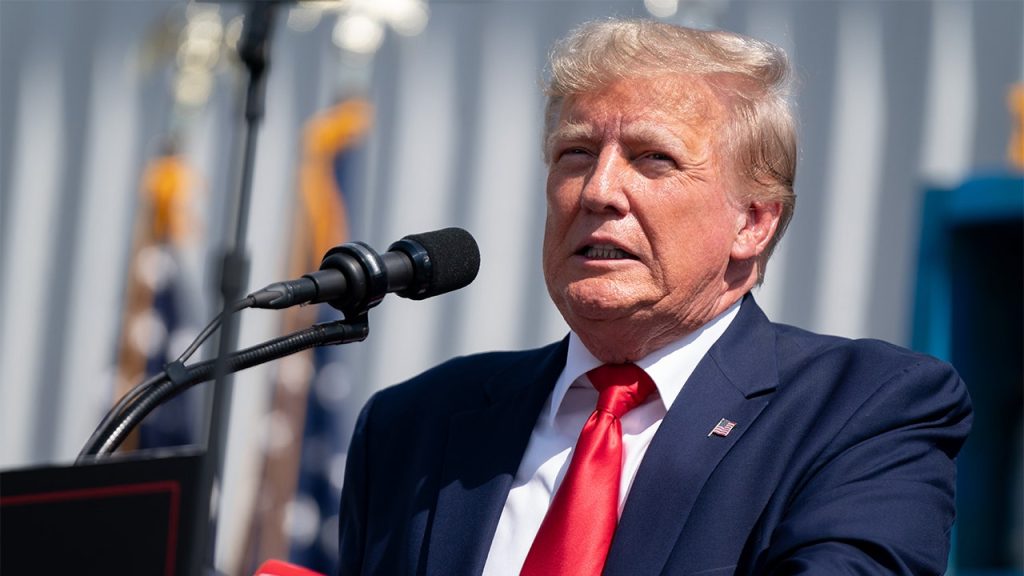Former President Donald Trump and his co-defendants in the Georgia election interference case are seeking to appeal the indictment against them on First Amendment grounds. They have requested a judge to allow them to appeal based on the argument that the charges should be dismissed because their actions and statements about the 2020 presidential election were constitutionally protected. The defendants believe that their core political speech and expressive conduct, related to the election, are protected by the First Amendment, and they are seeking immediate appellate review of the court’s order to dismiss the charges.
The joint motion filed by Trump and his co-defendants argues that the indictment wrongfully criminalizes core political speech and expressive conduct that are protected by the First Amendment. It suggests that the court’s denial of their pretrial First Amendment challenges should be reviewed by a higher court to ensure their constitutional protections are upheld. The appeal is considered necessary because it could potentially bar every count of the indictment against the defendants if successful, avoiding lengthy jury trials and resolving outcome determinative issues before the trials take place.
The defendants’ legal team believes their arguments are well-founded and fall within the almost absolute First Amendment protections for core political speech in the context of the events surrounding the 2020 Presidential election. They cite numerous U.S. Supreme Court cases and historical precedent to support their position. Special prosecutor Jack Smith acknowledged that Trump had a right to speak publicly about the election, challenge its results through legal means, and express his views on the matter, as protected by the First Amendment.
Former Atlanta prosecutor John Malcolm agrees with Trump and his legal team that his speech regarding the 2020 election should be considered protected speech under the First Amendment. He emphasizes that Trump, like any American, had the right to express his views on the election and petition government officials for redress of grievances. The prosecution against Trump and his co-defendants is argued to violate First Amendment protections of political speech, activity, freedom of association, and the right to petition Congress, with the indicted charges being deemed overbroad.
Upon interpreting the language of the indictment, Judge McAfee ruled that the defendants’ expressions and speech were alleged to have been made in furtherance of criminal activity, involving false statements made knowingly and willfully. Trump was indicted on multiple charges, including violations of the Georgia RICO Act, solicitation of violation of oath by a public officer, conspiracy to commit forging documents, filing false documents, and more. The judge determined that the First Amendment protections did not extend to the actions and statements alleged by the State, and the defendants will await a decision on their appeal request.
The defendants continue to argue that their prosecution infringes on their constitutional rights and that the charges are overbroad, involving core political speech that should be protected. The case highlights the ongoing legal battles stemming from the 2020 Presidential election and the extent of free speech protections under the First Amendment. As they seek appellate review, the defendants aim to secure the dismissal of the charges based on the grounds of upholding their fundamental right to express their views and engage in political speech without facing criminal consequences.


